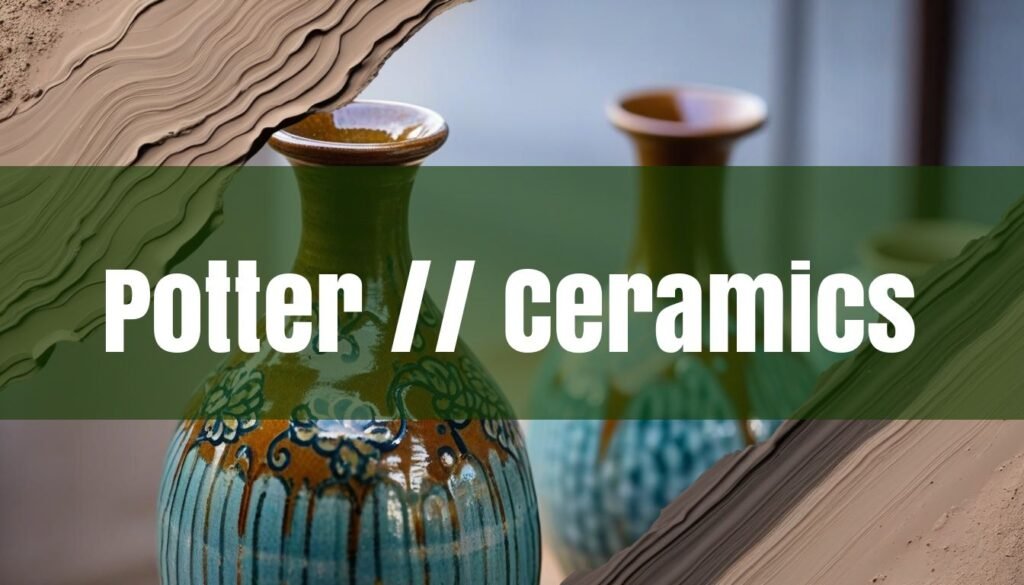Are you looking to get your hands dirty and explore the wonderful world of ceramics? Finding the right place to dive into pottery can feel like searching for a hidden gem, but fear not! This article is your guide to uncovering local ceramics opportunities, whether you’re a complete beginner or an experienced artist seeking a new studio. We’ll explore various avenues, from dedicated ceramics studios to community centers, ensuring you find the perfect fit for your skill level, budget, and creative desires.
Ceramics Studios: A Haven for Clay Enthusiasts
Ceramics studios are havens for clay enthusiasts. These dedicated spaces often offer a range of classes, from introductory courses for novices to advanced workshops for seasoned potters. You’ll find expert instructors ready to guide you through every step of the process, from wedging clay to glazing your finished masterpiece. Beyond classes, many studios provide open studio time, allowing you to practice your skills and work on personal projects independently. Equipment rentals are another perk, giving you access to essential tools like pottery wheels, kilns, and various shaping and decorating implements without the commitment of purchasing them yourself. The benefits of a ceramics studio extend beyond just equipment and instruction. They foster a sense of community, connecting you with fellow artists who share your passion. Pottery co-ops and guilds can be a great way to find this kind of supportive environment. This supportive environment can be invaluable, providing inspiration, feedback, and lasting friendships. When choosing a ceramics studio, consider factors such as the studio’s atmosphere, the instructor’s teaching style, the types of classes offered, and the availability of open studio time. Don’t hesitate to visit different studios, talk to instructors and students, and see if the space resonates with your creative spirit.
Here’s a great video showing a peacock glaze technique:
Community and Art Centers: Accessible Entry Points
Many community centers and art centers also offer ceramics programs as part of their broader range of artistic offerings. These programs can be a more affordable option than dedicated ceramics studios, making them an accessible entry point for beginners. While the equipment and facilities may be more basic compared to specialized studios, community centers often provide a welcoming and inclusive environment for learning. The instructors may be volunteers or experienced hobbyists who are passionate about sharing their knowledge. Community center ceramics programs may focus on basic techniques like hand-building, which involves shaping clay without a pottery wheel, using methods such as pinching, coiling, and slab building. You might learn to create pinch pots by shaping a ball of clay with your fingers, coil pots by joining ropes of clay together, or slab pots by assembling flat pieces of clay. These techniques are fundamental to understanding clay’s properties and developing your sculpting skills. Art centers, on the other hand, may offer a wider range of ceramics programs, including wheel throwing and more advanced decorating techniques. These centers often have better-equipped studios and instructors with more formal training. When exploring community centers and art centers, inquire about the ceramics programs they offer, the skill level they cater to, the available equipment, and the instructors’ qualifications. If you are interested in teaching pottery yourself, read up on our guide to teaching pottery classes.
Workshops and Short Courses: Concentrated Learning Experiences
Independent artists and educational institutions frequently host workshops and short courses that offer a concentrated learning experience in ceramics. These workshops can be a great way to explore specific techniques, such as glazing, surface decoration, or alternative firing methods. They often feature guest instructors who are experts in their field, providing unique insights and perspectives. Workshops can range from a single day to several weeks, offering flexibility to fit your schedule and interests. Educational institutions, such as colleges and universities, may offer non-credit ceramics courses for the general public. These courses can provide a more in-depth learning experience than workshops, covering a wider range of topics and techniques. The instructors are typically experienced faculty members who can provide comprehensive guidance and feedback. When searching for workshops and short courses, consider your learning goals, the instructor’s expertise, the course content, and the location and timing. Online platforms, local art organizations, and educational institutions are excellent resources for finding these opportunities. Look for workshops that align with your specific interests and skill level, whether it’s learning the basics of wheel throwing, mastering a particular glazing technique, or exploring alternative firing methods like raku.
Online Search Tools
In today’s digital age, finding ceramics opportunities near you is easier than ever. Online search tools like Google, Yelp, and Facebook can help you locate studios, community centers, and art centers offering ceramics programs in your area. Use keywords such as “ceramics classes near me,” “pottery studios,” or “ceramics workshops” to narrow your search. Don’t forget to explore local resources like community bulletin boards, art councils, and cultural organizations. These organizations often maintain directories of local artists and arts programs. Social media platforms like Instagram and Pinterest can also be valuable sources of inspiration and information. Search for hashtags like #ceramics, #pottery, or #clayart to discover local artists and studios. Many ceramics studios and artists have a strong online presence, showcasing their work, announcing classes, and providing contact information. Once you’ve identified potential options, take the time to research each one thoroughly. Read reviews, visit their websites, and contact them directly to ask questions about their programs, facilities, and instructors. Consider your skill level, budget, and desired experience when making your decision. Whether you’re a complete beginner or an experienced potter, there’s a ceramics opportunity out there waiting for you. Embrace the journey, get your hands dirty, and discover the joy of creating with clay.





